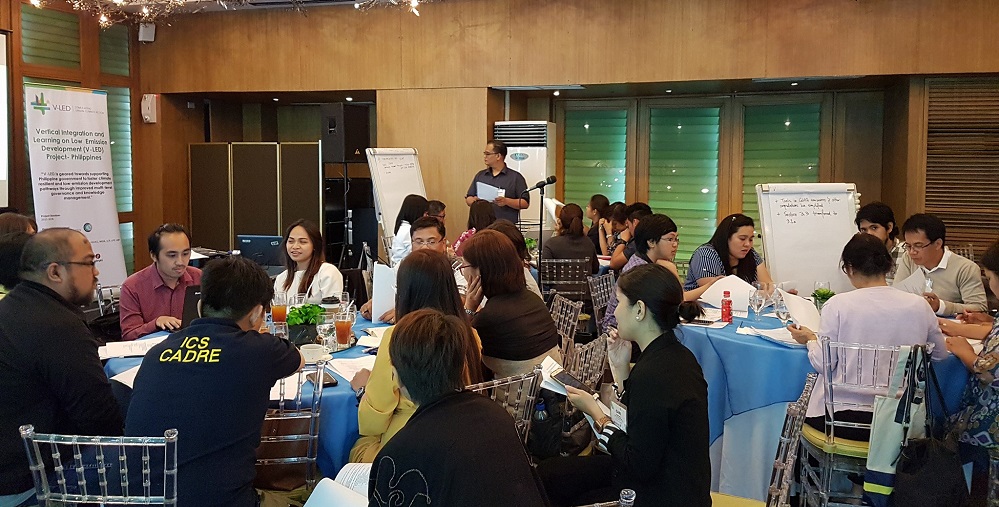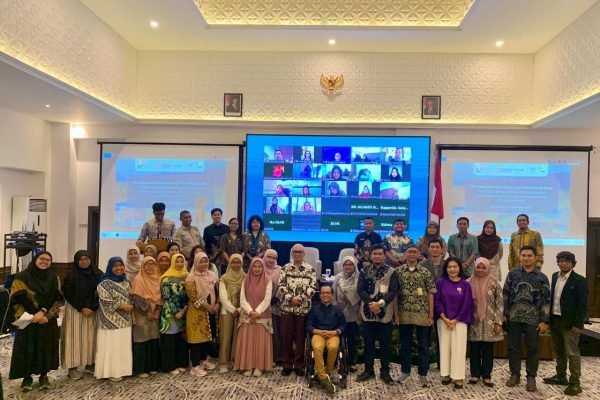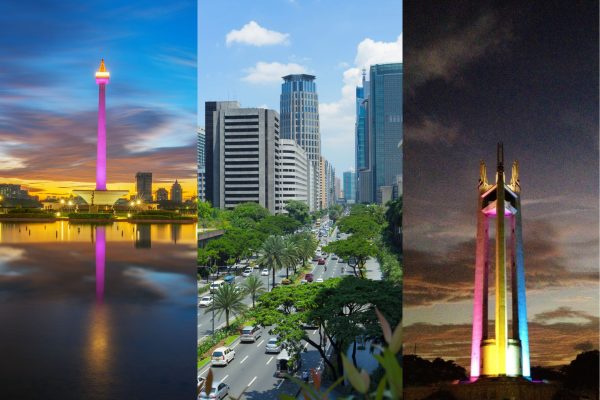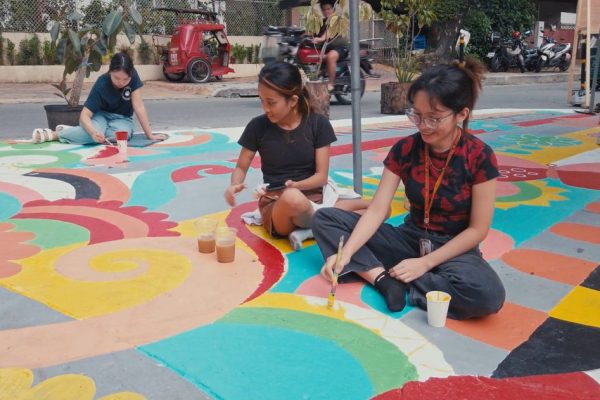Selected ICLEI SEAS staff attended a two-day consultation-workshop on the enhancement of the Local Climate Change Action Plan (LCCAP) formulation process. The workshop was organized by the United Nations Human Settlements Programme (UN Habitat) under its V-LED (Vertical Integration and Learning for Low Emission Development) project last March 27 to 28 in Pasig City, Philippines.
The two-day workshop aimed to review the annotated outline of the enhanced LCCAP guidebook, developed by UN Habitat in partnership with the Department of the Interior and Local Government – Local Government Academy (DILG-LGA).
Last 2014, DILG-LGA released two guidebooks aimed at helping cities and municipalities in developing their LCCAPs. The LCCAP is a mandated plan to be developed by local government units under Republic Act 9729 (Climate Change Act of 2009). The enhanced guidebook intends to include additional components on climate change mitigation including conduct of greenhouse gas (GHG) inventory.
During the workshop, ICLEI SEAS Program Manager Mr. Ranell Dedicatoria discussed the organization’s ongoing work with Tagbilaran City in formulating the LCCAP. This initiative is part of the Strengthening Urban Resilience for Growth with Equity (SURGE) project of the United States Agency for International Development (USAID) where ICLEI SEAS serves as a technical partner.
In his presentation, he emphasized the importance of harmonizing the various tools available at the national government including the Climate and Disaster Risk Assessment (CDRA) and the LGA guidebook. He also discussed on-ground challenges in conducting LCCAP workshops including lack of quantitative data to support the calculation of vulnerability index, prioritization of adaptation actions, and development of a monitoring and evaluation (M&E) system for climate change actions.
Relevant national government agencies including the Climate Change Commission (CCC), Housing and Land Use Regulatory Board (HLURB), National Economic and Development Authority (NEDA), Philippine Atmospheric Geophysical and Astronomical Services Administration (PAGASA), as well as regional representatives of DILG attended the workshop. The USAID Building Low Emission Alternatives to Develop Economic Resilience and Sustainability (B-LEADERS) was also represented.
The V-LED project is implemented by UN Habitat in partnership with adelphi Research. The CCC serves as project political partner. V-LED is funded by the International Climate Initiative (IKI) – German Federal Ministry for the Environment, Nature Conservation, Building and Nuclear Safety (BMUB).




